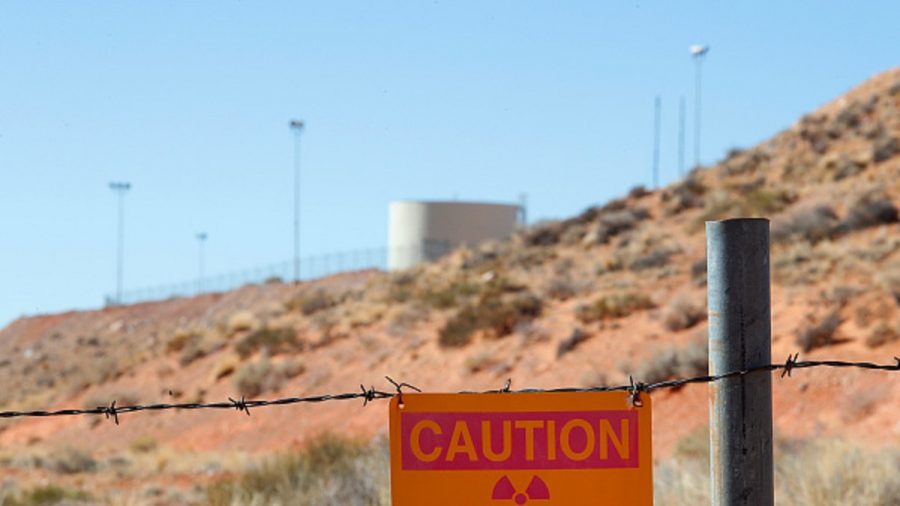MOSCOW— Security officials in the country of Georgia say two men have been arrested for possessing uranium that they were planning to sell.
A statement from the State Security Service on Wednesday said the two were arrested in Kobuleti, a town on the Black Sea.
The statement said they were in possession of about 40 grams of uranium-238. That is the most common isotope of uranium and is not fissile but can be used to produce highly fissile plutonium-239.
The arrested men aimed to sell the uranium for $2.8 million, the statement said.
The Uranium One Scandal Explained
In 2010, the Obama administration granted approval to Russia’s atomic agency, Rosatom, to acquire a majority stake in Uranium One. The deal was controversial because the Canadian mining company at the time controlled 20 percent of all uranium mining capacity in the United States.
Given the national security implications, the deal required approval by the Committee on Foreign Investment in the United States (CFIUS), which included the State Department, then headed by Hillary Clinton.
Russia had well announced its plans to corner the global uranium market as a way to exert political control over other countries. As early as 2006, Russia announced it would spend $10 billion to grow Russia’s global uranium production capacity by 600 percent.
Uranium is a key component for nuclear weapons as well as nuclear energy. A July 2011 report from the U.S. Energy Information Administration revealed that American nuclear power plants relied on imports for 92 percent of their uranium supply. Twenty-three percent was imported from Russia.

So why did President Barack Obama and the State Department headed by Hillary Clinton approve the deal that weakened America’s security and energy independence?

The Epoch Times, using public sources, including the book “Clinton Cash” by Peter Schweizer, has mapped out the connections and events related to the Uranium One acquisition by Russia.
It shows that while the State Department under Hillary Clinton was considering approving the deal, as part of the CFIUS approval process, Russia and key stakeholders in the deal paid millions to the Clinton Foundation.
Bill Clinton himself traveled to Moscow just months before the deal was approved to meet with Vladimir Putin. Clinton was also paid $500,000 for a speech he gave in Moscow by Renaissance Capital, an investment firm with an interest in the Uranium One deal and ties to Putin.

The FBI at the time was aware that the Russian authorities had staged a large-scale operation to blackmail and extort U.S. companies connected to uranium production and transportation.
The agency also had a well-placed source working in the uranium industry that provided extensive evidence of bribery and corruption.
However, the investigation was killed in 2015 by FBI Director James Comey, and the key informant was given a gag order and prevented from talking to Congress by Obama’s attorney general, Loretta Lynch.
That gag order was lifted by Attorney General Jeff Sessions last year, and three congressional committees interviewed FBI informant William Campbell on Feb. 7.
He revealed how the Russian government used an American lobbying firm, APCO, to funnel millions of dollars to the Clinton Foundation’s Global Initiative, The Hill reported on Feb. 7.
In December, Attorney General Jeff Sessions had announced it is revisiting evidence obtained by the FBI in an investigation into the Uranium One Deal.
On Jan. 12, the DOJ unsealed an 11-count indictment of a former co-president of a Maryland-based transportation company for his alleged role in the bribery of a Russian official connected to Russia’s State Atomic Energy Corporation.
The Epoch Times reporters, Jasper Fakkert and Joshua Philipp contributed to this report.


